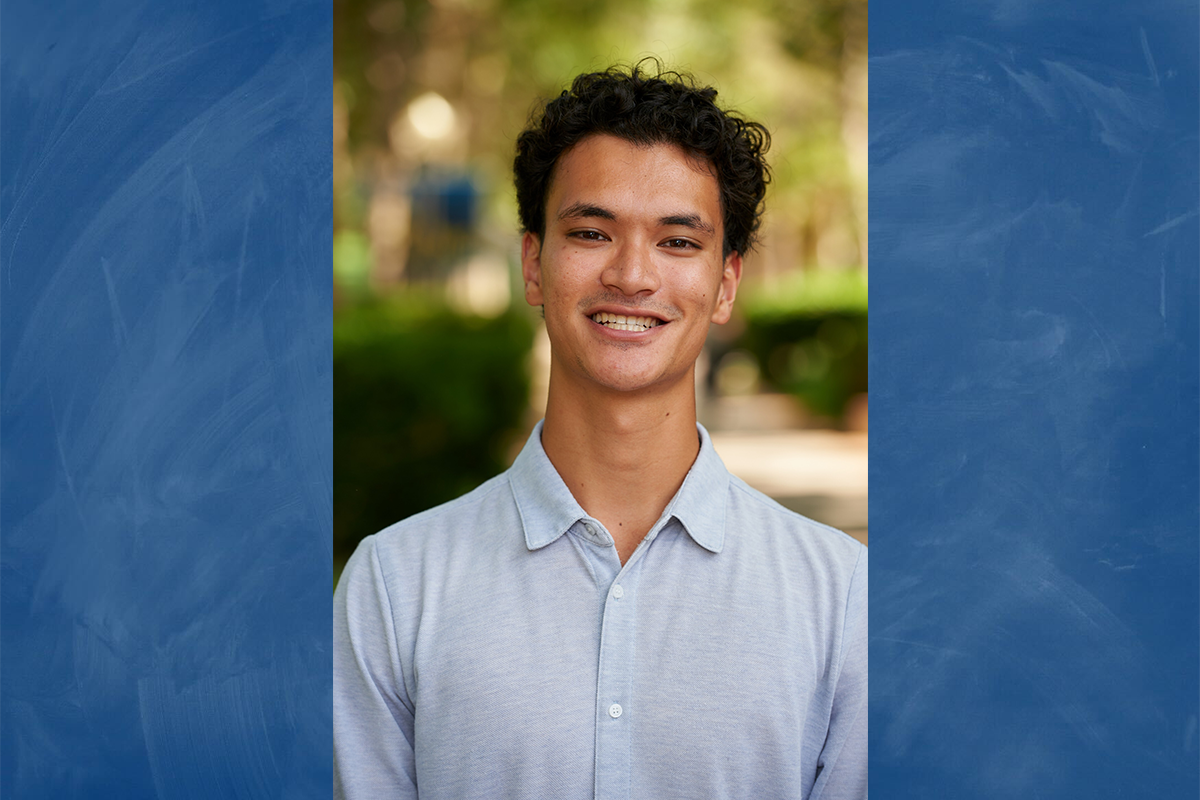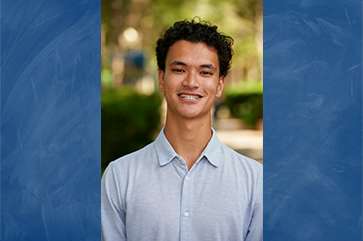Next stop: medical school
How a UCLA program helped an ambitious undergraduate from South Los Angeles chase his dreams

Emma Horio | October 27, 2025
Ziane Djenidi, a fourth-year neuroscience student at UCLA, credits his early exposure to hospitals as one of the first things that piqued his interest in medicine. Having to understand geographical care discrepancies at a young age gave him a desire to bridge health inequalities in underserved neighborhoods.
As a small child, Djenidi loved to take trips to the nearby Cedars-Sinai Medical Center’s food court. He liked being around the doctors and even dressed up as one for Halloween for many years.
The food court visits stopped when Djenidi began elementary school and his family relocated to the Crenshaw District in South Los Angeles. The Crenshaw District, along with much of South Los Angeles, is a federally recognized Medically Underserved Area, a designation that is calculated by scoring an area’s poverty rate, medical providers per 1,000 residents, percentage of senior citizens and infant mortality rate.
Eventually, Djenidi went back to Cedars-Sinai in high school, this time as a teenage volunteer.
“I started to realize that medical care in Crenshaw often looked different from what I saw at Cedars-Sinai,” Djenidi said. “I was still young, but I could tell it was a big problem, and it made me want to pursue medicine more.”
His parents pushed him to join VIPS, or the Vice Provost’s Initiative for Pre-College Scholars, a partnership between UCLA and Los Angeles public schools that helps students from underserved communities prepare for higher education. Djenidi, the first in his family to go to college, still remembers how terrified he felt interviewing for the program in 10th grade.
“At first, I was like, ‘just let me be a kid,’” Djenidi recalled. “But once I joined VIPS, I had more of a drive to go to college.”
VIPS helped Djenidi prepare for college and know what to expect, and once he arrived at UCLA, the program was there to encourage and support him through a difficult first year. When he struggled in chemistry classes, VIPS staff connected him with resources that helped him improve his performance. Djenidi also credits VIPS with teaching him the importance of becoming a well-rounded student and person in college, as well as other soft skills for succeeding in higher education, such as how to advocate for himself and connect with mentors.
He developed an impressive schedule of extracurriculars, including doing research in Dr. Greg Field’s Retinal Circuits Lab at the Jules Stein Eye Institute, where he studies retinal degeneration. He also volunteers for Students for Community Outreach, Promotion and Education (SCOPE) in the Fitness and Nutrition Program, where he teaches elementary school children in low-income neighborhoods about health, nutrition and fitness.
This past summer, Djenidi was accepted to and attended the Pre-Medical Enrichment Program (PREP) at the David Geffen School of Medicine at UCLA, a prestigious program that helps undergraduate students prepare for medical school. Now, he’s preparing to tackle the MCAT before applying to medical school.
As a successful VIPS alumnus, Djenidi also gets to lend a hand to high school students just starting their journey to college. He volunteers with “buddy days,” where current high-schoolers in the program visit the UCLA campus and pair off with an undergraduate student who shows them what their college life looks like.
“For some participants, this is their first time stepping foot on a college campus and talking to a college student,” Djenidi said. “I hope this experience can take away a lot of misinformation and let them be more excited to go to college, when they see other people like them doing it.”
Djenidi is only one of many success stories in VIPS’s 20-year history. Since the program’s inception, 100% of its 700+ participants have graduated high school, with 95% matriculating at a four-year university. However, funding cuts affecting several areas of UCLA’s Academic Advancement Program, which houses VIPS, have significantly curtailed the program. Without securing $610,000 in annual operating costs for the 2025–26 academic year, VIPS may have to pause all operations. Those who would like to support VIPS can donate directly to the program here.
“I still point them toward VIPS, because the community is still there, and there’s a bunch of us,” Djenidi said. “It’s not a replacement for the program, but I just try to be a mentor to them and connect them to other resources I can’t provide.”
In addition to his work with students, Djenidi’s example — and that of his fellow VIPS students — resonates across and beyond the community.
“Our alumni embody the heart of the VIP Scholars Program,” said Jonli Tunstall, interim director of AAP and director of VIPS. “They remind us that the work we do — mentoring, empowering families and building a college-going culture — has lasting ripple effects across generations. Their success is the truest measure of our impact.”




